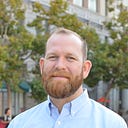On the Frontlines of Pandemic Education
While many schools cannot provide in-person classes, afterschool programs are delivering in-person enrichment on school campuses — and all is not quiet on the education front. The coronavirus pandemic continues to have devastating effects across the world and has become a divisive political issue in the United States. This virus has laid bare our society’s injustices, including inequity in public education. Distance learning has potential, and I hope we figure it out.
In the meantime, students are being left behind. The responsibility for this is not to be laid at the feet of our nation’s teachers. Distance learning is just not working for everyone. The reality is that some students need to learn in person. Some parents cannot go back to work without access to childcare. Some students are going hungry without regular access to school meals. Some students don’t have adequate support at home to assist with schoolwork in a digital setting.
In the past, I have intentionally avoided the use of militaristic language when referring to the work we do in education. Teachers and afterschool program educators are not “frontline workers,” because kids are not the enemy. The enormous task of educating children is not a battle, but being an essential worker might be. As our employees prepare to provide in-person programs, they put on protective gear, follow stringent safety procedures, and perhaps put their own health on the line. Not because we have been careless in sending them into the workplace. In fact, we have poured countless hours and incredible effort into getting this right.
The need is great, and we have a responsibility to respond. We also have a responsibility to our employees. We must do everything we can to keep them safe. It is here that I have found this “frontline” language to be appropriate for the first time.
Smarter people than me have explored how we can make a positive impact during the pandemic and our role in reopening schools. I will not even attempt to provide safety guidance to readers here. Let us leave that to the authorities and medical professionals. I will however admit how conflicted I am. The tension we navigate in prioritizing the needs of our students and ensuring the safety of our employees keeps me up at night.
In some ways, our purpose in this work has never been clearer. We might be some of the only educators permitted to serve students on campus — and our students need us. I do not mean to suggest afterschool educators are saviors, just that every lifeline thrown to students during this pandemic will be needed. Sometimes we provide childcare, and on other occasions we are true partners in education reform efforts.
I happen to be the General Manager of the Bay Area Region at Think Together. One of our highest priorities as an organization is safety. We value education and justice, we know our students need us, and for the moment, we know that we might be the only ones in a position to heed this call. Our enemy is COVID Learning Loss, and we are needed in this fight.
While our office has been closed and most of our workforce has been remote since March, we have been more active than ever.
- Students in our virtual summer programs picked up activity packs to participate online, and we raffled off bicycles for program participants. One student was so excited about his new bike that he rode it all the way home with his parent following slowly behind him in the car.
- Some of our staff and students organized eSports tournaments and practiced internet safety as part of their distance learning program.
- Other team members provided wellness checks for our families and worked with our school partners to support students and families.
- In Compton and Bellflower, in-person learning began last week, and we are preparing to launch many more in-person programs in the coming weeks.
Expanded learning providers across the state are ready to support kids online, in-person, or both. There are many ways expanded learning programs can make an impact during the pandemic. Our mission — to change the odds for kids — has not changed.
President Obama once described the sheer weight of certain decisions, like sending troops to war, as something that could be understood intellectually, but when you consider the individuals, you are reminded how much the decisions you make count. These are uncertain times and I encourage you to embrace the tension between the needs of your students and the needs of your team. Take your responsibilities seriously because the decisions you make count. Someday you will be asked, “How did you help during the pandemic?”
This post first appeared on the BOOST Breakfast Club Blog. BOOST is the most comprehensive online community for in and out-of-school time.
About Me:
Daren Howard is the General Manager of the Bay Area region of Think Together, a nonprofit organization that provides education services, such as after school programs. Daren also serves as a member of the Board of Directors at InPlay, a nonprofit that seeks to increase access to expanded learning programs.
